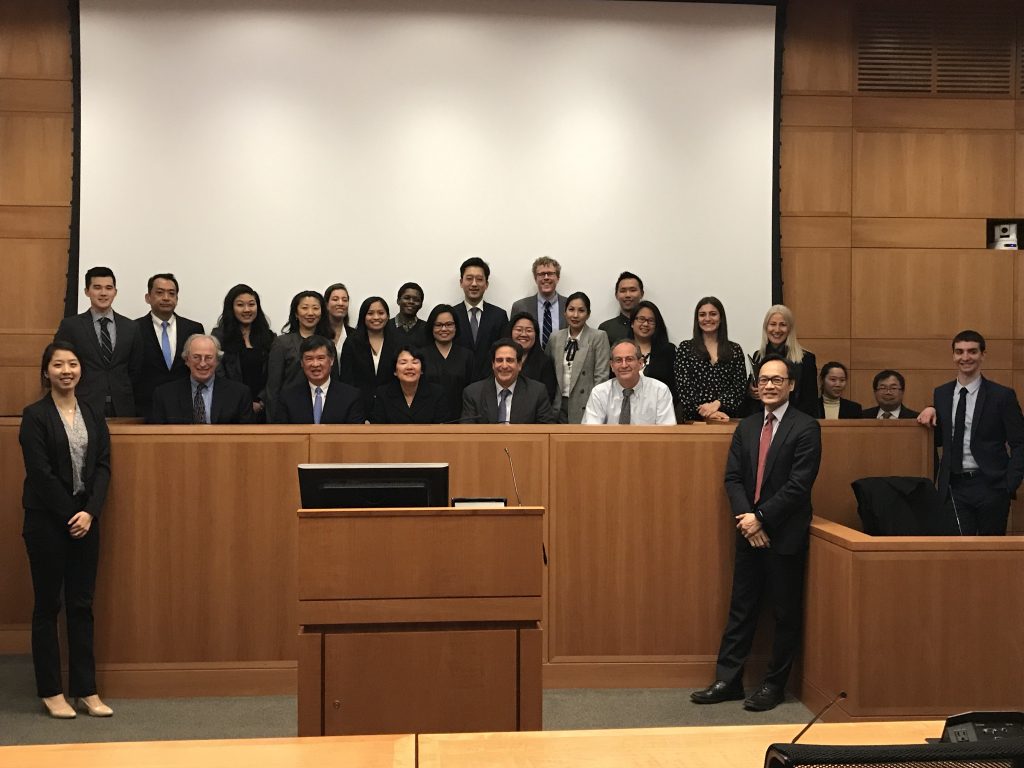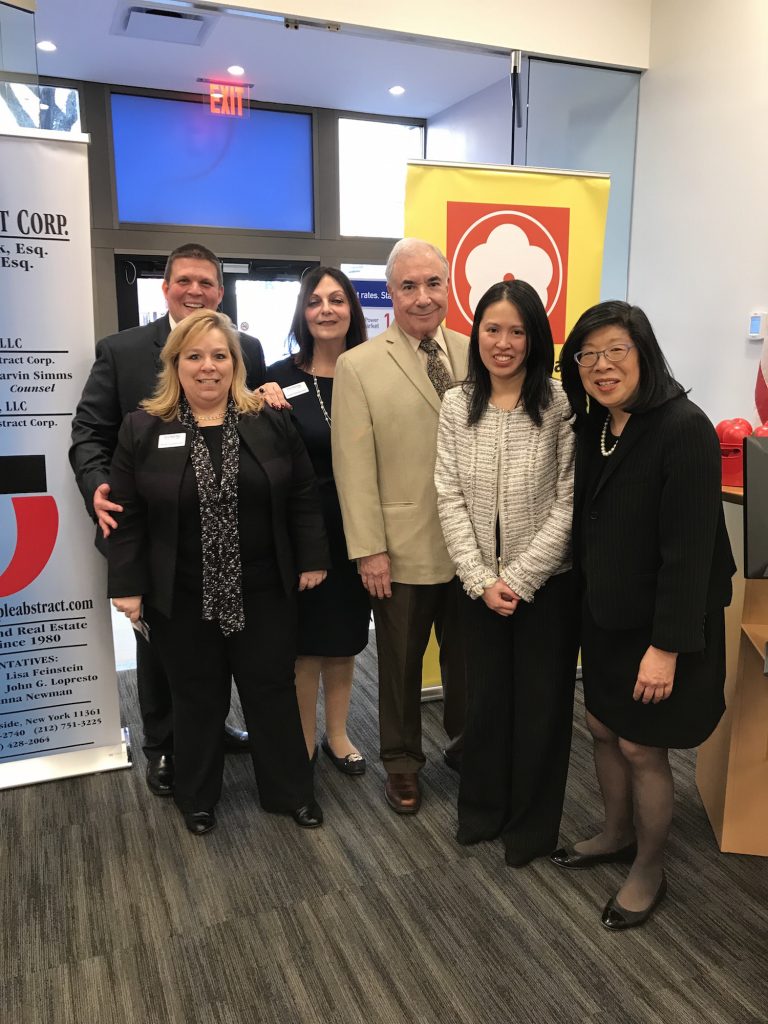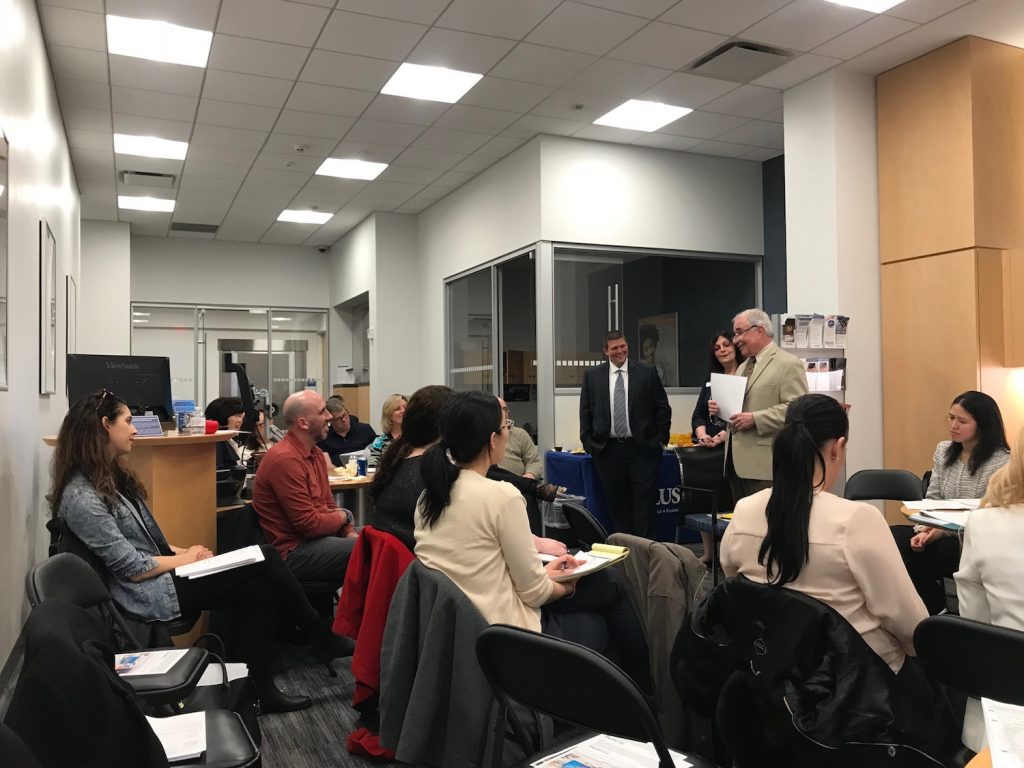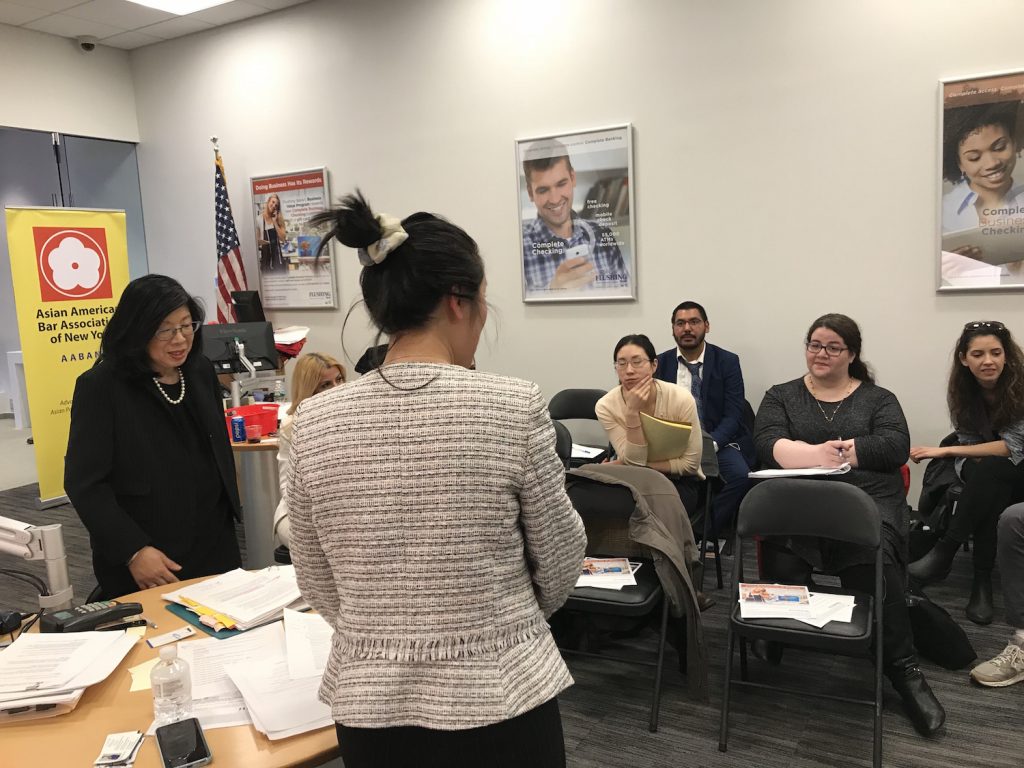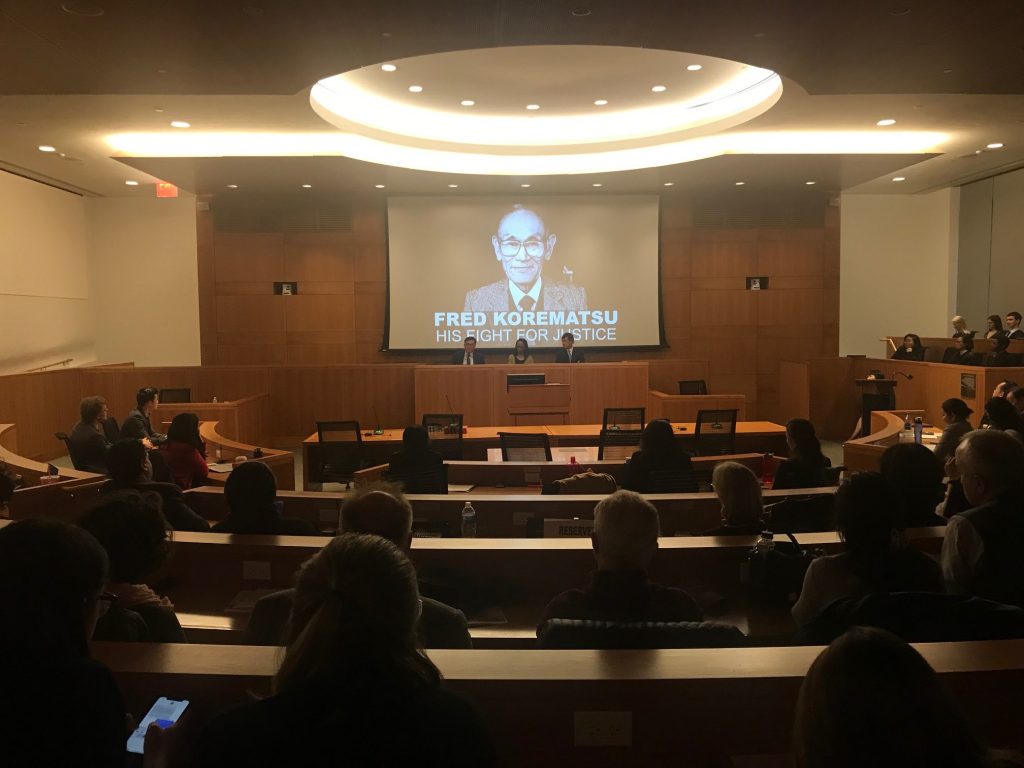
On April 3, 2019, AABANY co-sponsored with Fordham APALSA and the Federal Bar Association a trial reenactment of the historical case, Korematsu v.
As every seat in the spacious Moot Courtroom filled up and audience members began to stand along the sides, Dean Matthew Diller of Fordham Law School delivered passionate opening remarks. The Dean noted that the reenactment is vital to this time, for we not only need to remember the best of this nation, but also the worst of it. Judge Denny Chin, United States Circuit Judge of the United States Court of Appeals for the Second Circuit, and his wife Kathy Hirata Chin played their usual roles of Narrators 1 and 2. The cast of the reenactment consisted of students and faculty from Fordham and a few members of the AABANY Trial Reenactment Team.
Korematsu’s struggles were recounted on a sunny afternoon in April 2019, yet a sense of heaviness that seemed to belong to an older time filled the room. Fred Korematsu was arrested during WWII for his disobedience of Executive Order 9066, which ordered Korematsu to an incarceration camp for being Japanese American. Korematsu spent the rest of his life fighting for justice. The performers’ voices were amplified through microphones, accompanied by PowerPoint slides projected onto the wall on the stage, guiding the audience through Korematsu’s decades-long struggle. When Fred Korematsu exclaimed on the stage, “The Supreme Courts’ decision meant that being an American was not enough — you also have to look like one; otherwise, you may be seen as an enemy of the state,” one cannot help but reflect on the differences and similarities of minority experiences between past and present.
The last part of the reenactment struck a thought-provoking and alarming note when the Korematsu case was overruled in a footnote in the Supreme Court’s decision in Trump v. Hawaii, but the decision itself served as justification for the travel ban targeting Muslims, raising the question of whether one injustice was exchanged with another. The reenactment ended with a wave of prolonged and warm applause from the audience.
A Q&A session and a reception followed, ending the night with great food, drinks
We thank Judge Denny Chin and Kathy Hirata Chin for their continuing contributions to AABANY’s reenactment program. We thank Fordham Law School for hosting the event, and Fordham APALSA and the Federal Bar Association for co-sponsoring the reenactment. We thank the volunteer actors for delivering incredible performances. Last but not least, we thank everyone who attended the event for joining us in remembering Fred Korematsu and celebrating his achievements.
For more information on AABANY’s trial reenactment programs, visit our reenactment website at https://reenactments.aabany.org/.

